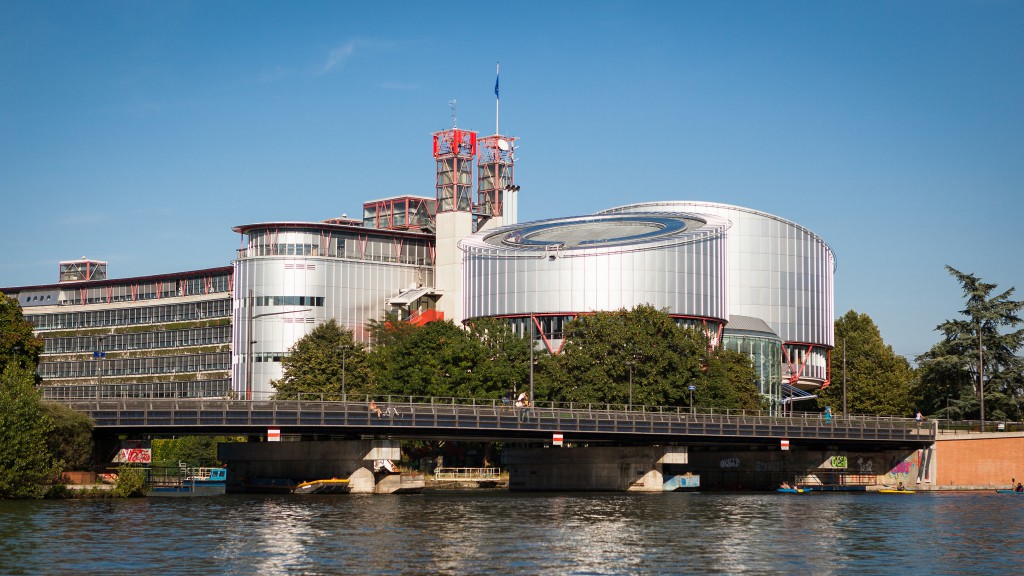Are the media owners responsible for hate speech?
Published in Analyses
on 18 - 12 - 2014 Author: Administrator
- The European Court of Human Rights in Strasbourg. Photo: LuxTonnerre, 2013
Can media owners be convicted or punished for hate speech in their media?The answer is yes, if we take into consideration the rulings of the European Court of Human Rights and the International Criminal Tribunal for Rwanda.
Author: Zharko Trajanoski, MA in Human Rights
Case Sürek v. Turkey (no.1)
An owner of a weekly review in Turkey was convicted and fined for publishing two letters of readers in August 1992, which the state considered to be disseminating separatist propaganda, inciting animosity and hatred, and justifying terrorist acts (the letters, translated to English, are included in the ruling). After the media owner filed an appeal, referring to the European Convention for Human Rights, the Commission for Human Rights held that the language used in the letters can be interpreted as an encouragement for further violence. Hence, the decision of the authorities to punish the owner for publishing these letters (which were detrimental to the national security and public safety) was not interpreted as a violation of his right to freedom of expression. The owner defended himself stating that the views in the letters were not his own views, but of the readers, and that he only had a commercial, not an editorial connection with the weekly review. However, the Grand Chamber of the European Court of Human Rights did not accept these arguments and held that the owner had the power to shape the editorial policy of the weekly review, and that he bears responsibility, same as the editors and journalists. According to the court, although the owner „did not personally associate himself with the views contained in the letters, he nevertheless provided their writers with an outlet for stirring up violence and hatred.“ The content analysis of the court, which took into consideration the context (the clash between the Turkish army and the PKK), established the following:
“…the letters must be seen as capable of inciting to further violence in the region by instilling a deep-seated and irrational hatred against those depicted as responsible for the alleged atrocities. Indeed, the message which is communicated to the reader is that recourse to violence is a necessary and justified measure of self-defence in the face of the aggressor.“
According to the court, the letters called for a „bloody revenge by stirring up base emotions and hardening already embedded prejudices which have manifested themselves in deadly violence“. However, the ruling was not unanimous. Six judges (against eleven other judges) believed that there was a violation of the right to freedom of expression of the owner (who was not the author of the letters), and one of them held that the owner was “sanctioned because of the political message of the letters, and not because of their tone“.
“Media processes” in Rwanda
Questions about responsibility of persons that establish, own, control or form the editorial policy of the media were posed again during the controversial trial of two founders of a radio station (RTLM) and an owner and editor of a newspaper, by the International Criminal Tribunal for Rwanda. At the trial, judges held that editors and publishers are responsible for the media they control. The defendants were convicted not only for the hate speech directly inciting genocide, but for persecution as well, i.e. for media content spreading hate speech or inciting violence against the Tutsi. The perceptions of the Appeals Chamber on hate speech are particularly interesting for us:
“The Appeals Chamber considers that hate speech targeting a population on the basis of ethnicity, or any other discriminatory ground, violates the right to respect for the dignity of the members of the targeted group as human beings, and therefore constitutes “actual discrimination”.“
Aside from hate speech which is a violation of the dignity of members of the targeted group, the Appeals Chamber differentiates speech that incites violence, breaching the right to security of the members of the targeted group. However, the Appeals Chamber was dissatisfied with the initial ruling in terms of the consequences from hate speech for the other human rights:
“…the Appeals Chamber is not satisfied that hate speech alone can amount to a violation of the rights to life, freedom and physical integrity of the human being. Thus other persons need to intervene before such violations can occur; a speech cannot, in itself, directly kill members of a group, imprison or physically injure them.“
However, despite finding that speech itself does not directly kill, imprison or physically injure people, the Tribunal held that speeches that were broadcasted by RTLM Radio (by journalists that were subordinates of the defendant), had the same gravity as other crimes against humanity. According to the Tribunal, „Such speeches constituted a grave violation of the right to human dignity of the Tutsi, as well as very seriously threatening their physical and mental security.“ Therefore, the Appeals Chamber confirmed the indictment against Ferdinand Nahimana (founder of RTLM), „since he did not take necessary and reasonable measures to prevent or punish the acts of persecution and instigation to persecution committed by RTLM staff after 6 April 1994“ (when the genocide in Rwanda starts). Although Nahimana defended himself that the radio station was not under his control after April 6, 1994, but under the control of the army, and that he was not in Rwanda, but a refugee in Burundi, the court held that he had a “material capacity to prevent or punish RTLM broadcasts of criminal discourse even after 6 April 1994”.
Moral: Owners are responsible for hate speech
What conclusions can we draw from the above mentioned cases? First, media owners can be considered responsible for hate speech, even if the speech inciting hatred or violence is in the “letters from readers” section. According to a recent, controversial decision of the European Court of Human Rights, news portals are also responsible for taking measures for preventing the publishing of illegal comments (including negative comments “that can cross the lines of acceptable criticism and reach the level of insult or hate speech”). Second, those who control the media should be aware that hate speech violates the dignity of the members of the targeted group, and if it incites violence, it also violates the right to security of the targeted group. This is exactly why they are responsible for taking all measures for preventing hate speech in their media and for punishing the editors and journalists who are spreading, inciting, promoting or justifying hatred on any grounds of discrimination.
This analysis was created within the framework of the USAID Media Strengthening in Macedonia Project – Media Fact-Checking Service Component, implemented by Metamorphosis. The analysis is made possible by the generous support of the American people through the United States Agency for International Development (USAID). The contents are the responsibility of its author and do not necessarily reflect the views of Metamorphosis, USAID or the United States Government. For more information on the work of USAID in Macedonia please visit its website (macedonia.usaid.gov) and Facebook page (www.facebook.com/USAIDMacedonia).

